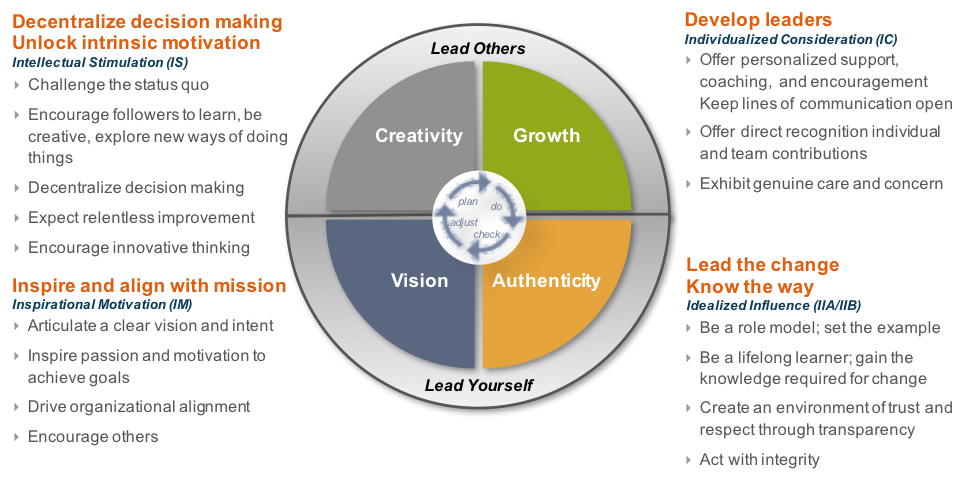"Culture eats strategy for breakfast."
—Mark Fields, Ford CEO, who attributed the quote to Peter Drucker
Ask any executive who has lived through an unsuccessful change initiative that ran counter to the organization’s culture, and he or she will tell you that Fields' maxim (the Drucker connection has never been verified) is a vast understatement. John Kotter, in his 1996 book Leading Change, boldly stated that in his experience, 70% of organizational change initiatives fail.
Subsequent research has shown that when initiatives challenge the existing corporate culture, the failure rate is even higher (81%, according to Martin E. Smith). These statistics should not be surprising. Culture runs deep in organizations, outlasting generations of employees who come and go over the years. In fact, Kotter stated in Leading Change that in an organizational change initiative, altering the culture comes last, not first.
The DevOps dynamic
Understanding this dynamic is critical for leaders engaging in a DevOps transformation. Few can argue that, for most organizations, the implementation of DevOps is not as simple as adopting a new set of technical practices and tools. It is one of the reasons why Gene Kim’s novel The Phoenix Project resonated so strongly with virtually everyone who has read it. DevOps offers tremendous promise for organizations that embrace the Three Ways, shifting from a silo culture to a lean-agile mindset focused on a continuous flow of value creation and delivery.
However, the daunting history of failures associated with culture change presents a barrier along the journey to DevOps. In fact, in a recent survey conducted by Quali, culture was the most frequently cited barrier to DevOps adoption among respondents. Combined with the research on the difficulties of culture change, the conclusion is clear: The transition to DevOps is inherently risky and prone to failure.
The easy answer might be to simply maintain the status quo and avoid the rocky path of cultural change that is often sparked by a DevOps initiative. The problem with that strategy is that DevOps is far more than just another methodology or framework for technologists. Today’s organizations face a never-ending stream of internal and external forces (market disruption from new entrants, global economics, geopolitical instability, currency fluctuations, changing workforce demographics, rapid advancements in technology, and more) that provide both opportunities and threats.
The ability to adapt and innovate rapidly in this environment has become a core organizational competency. Successful DevOps adoption leads to the changes in systems development processes, technology, and culture that enable the organizational agility required to gain competitive advantage in today’s markets. This leads to by reduced time to market, less waste, improved quality, and innovative products and services.
The inevitable question for leaders and change agents launching DevOps initiatives is clear: How do we beat the odds and stack the deck in our favor to increase the chances for success as we embrace DevOps principles, practices, and culture?
Why leaders matter
The secret to overcoming the challenges of cultural change related to DevOps implementations can be found in the way leaders lead. The research I conducted as part of my own doctoral journey affirms this hypothesis.
My first objective was to understand the reasons why organizational change initiatives have such a high failure rate. Many studies cited factors such as poor planning, institutional inertia, poor communications, and unrealistic expectations. The most common causes were overwhelmingly related to how individuals in an organization respond to change. The top three were, in order:
- Resistance to change.
- Low readiness for change.
- Poor employee engagement.
Armed with this knowledge, I set out to discover what researchers have pursued as ways to improve how members of an organization respond to change. Many studies found that how leaders lead and how they engage others can significantly and positively influence employee response to change.
Much of the most recent literature focuses on one theory: transformational leadership. Originally proposed by James McGregor Burns (an autobiographer of John F. Kennedy), transformational leadership has spawned more peer-reviewed research than all other leadership theories combined. The four core transformational leadership behaviors synthesized from Burns and subsequent researchers are summarized in the following infographic:
Figure. The behaviors of transformational leaders
My research also revealed two very important insights for organizational leaders responsible for current and future DevOps transformations. First, research shows that transformational leadership has a greater influence on followers’ commitment to supporting organizational change than implementing specific change management practices. Second, and perhaps most importantly, the behaviors of transformational leadership can be learned.
Take these proven steps
Organizations can take tangible, proven steps to increase the probability of success for DevOps and other change initiatives by investing in training, coaching, and mentoring programs for current and future leaders to help them grow in their transformational leadership competency. I have had the highly rewarding experience of participating on a team charged with developing and delivering such a program at a large federal IT contracting company, with exceptional results.
At last year’s DevOps Enterprise Summit (DOES), Gene Kim was so intrigued by the implications of this research that he sponsored a small experiment based on the hypothesis that we would find strong transformational leadership behaviors among the successful DevOps leaders he had invited to speak at the DOES conferences.
Current and previous speakers were asked to complete a transformational leadership survey that is widely used by researchers. The results confirmed my hypothesis: These successful DevOps leaders consistently exhibit strengths in vision, authenticity, and a commitment to individual growth and creativity through empowerment and decentralized decision making.
Leadership is the secret ingredient
The implication is clear: How leaders lead is the secret ingredient in navigating the perilous waters of cultural change inherent in a move to DevOps. The choice of leadership style has a direct influence on how members of the organization respond to the significant changes in processes, technology, roles, and mindsets.
When practitioners are engaged, motivated, empowered, and supported in an environment where leaders cast clear vision, lead with authenticity, and foster an environment of trust, the chances for a successful DevOps transformation increase dramatically.
Want to know more? Come see my presentation, Transformational Leadership: What Every DevOps Leader Needs to Know at DevOps Enterprise Summit London, or post your questions and comments below.
Keep learning
Take a deep dive into the state of quality with TechBeacon's Guide. Plus: Download the free World Quality Report 2022-23.
Put performance engineering into practice with these top 10 performance engineering techniques that work.
Find to tools you need with TechBeacon's Buyer's Guide for Selecting Software Test Automation Tools.
Discover best practices for reducing software defects with TechBeacon's Guide.
- Take your testing career to the next level. TechBeacon's Careers Topic Center provides expert advice to prepare you for your next move.




